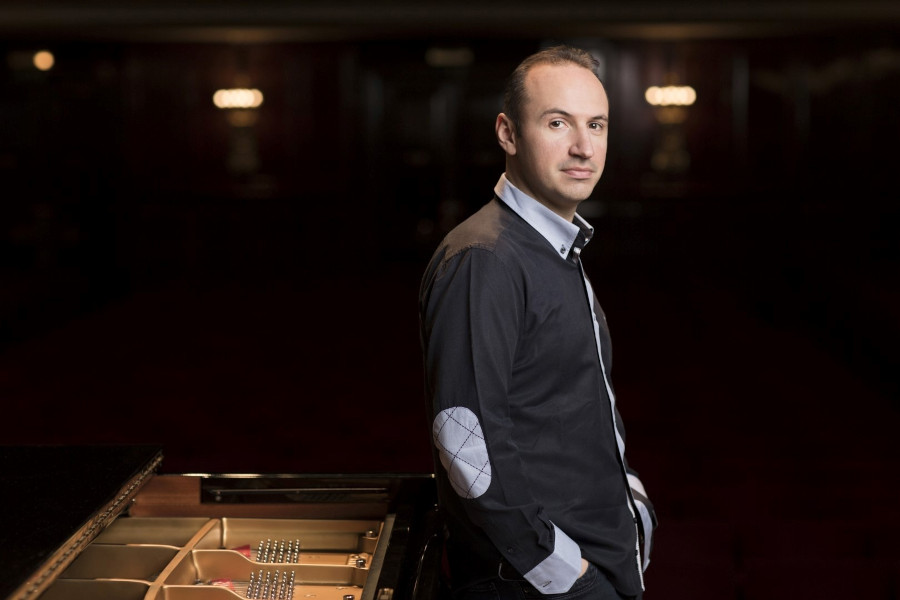The Royal Philharmonic Orchestra is one of the best orchestras in the world. Its recordings have been written with golden letters in the history of phonography, while the concerts are hard to forget. The first concert of RPO at the National Forum of Music will feature works by Richard Wagner, Edvard Grieg, and Jean Sibelius. They will be directed by an acclaimed conductor Vasily Petrenko, RPO artistic Director. The soloist will be Simon Trpčeski, an outstanding Macedonian pianist.
Richard Wagner went down in history of music as a great opera reformer and creator of definitive works in the genre of music drama. The rest of his compositions remain on the margins of Wagner’s oeuvre. This is also the case with the successful concert overture Faust. Initially, the composer planned to write a symphony based on themes taken from Johann Wolfgang Goethe’s drama, but later he gave up a symphony and combined his musical ideas into an overture, which was given its final shape in 1855. This work is dark, full of drama and ends in a solemn and serene manner.
he next piece in the concert programme, Edvard Grieg’s Piano Concerto in A minor, is also an early work. The Norwegian composer wrote it in 1868, when he was only twenty-four years old. You can hear here the romantic pathos, the influences of the works of Robert Schumann, whom Grieg admired, and the echoes of Norwegian folk music. This vigorous piece quickly gained immense popularity and remains one of Grieg’s most performed compositions today. It gives the pianist both the opportunity to present a great technique and to build a very specific, cool and raw mood, so often associated with music created by composers from the north of Europe.
The concert will end with a performance of the Symphony No. 2 in D major by Finnish composer Jean Sibelius. This work was created in the years 1901–1902, and the artist began working on it during his winter stay in Italy’s Rapallo. The premiere took place in March 1902 in Helsinki under the composer’s baton. Critics received the composition with admiration, which confirmed Sibelius’s position as one of the leading symphonists of the turn of the century. The composer described The Second as “a soul's confession”. It is music full of drama and pathos, but it also has episodes that sound raw and cold. The conflicts and hesitations presented in the first three movements lead to a brilliant, thrilling apotheosis in the finale.

